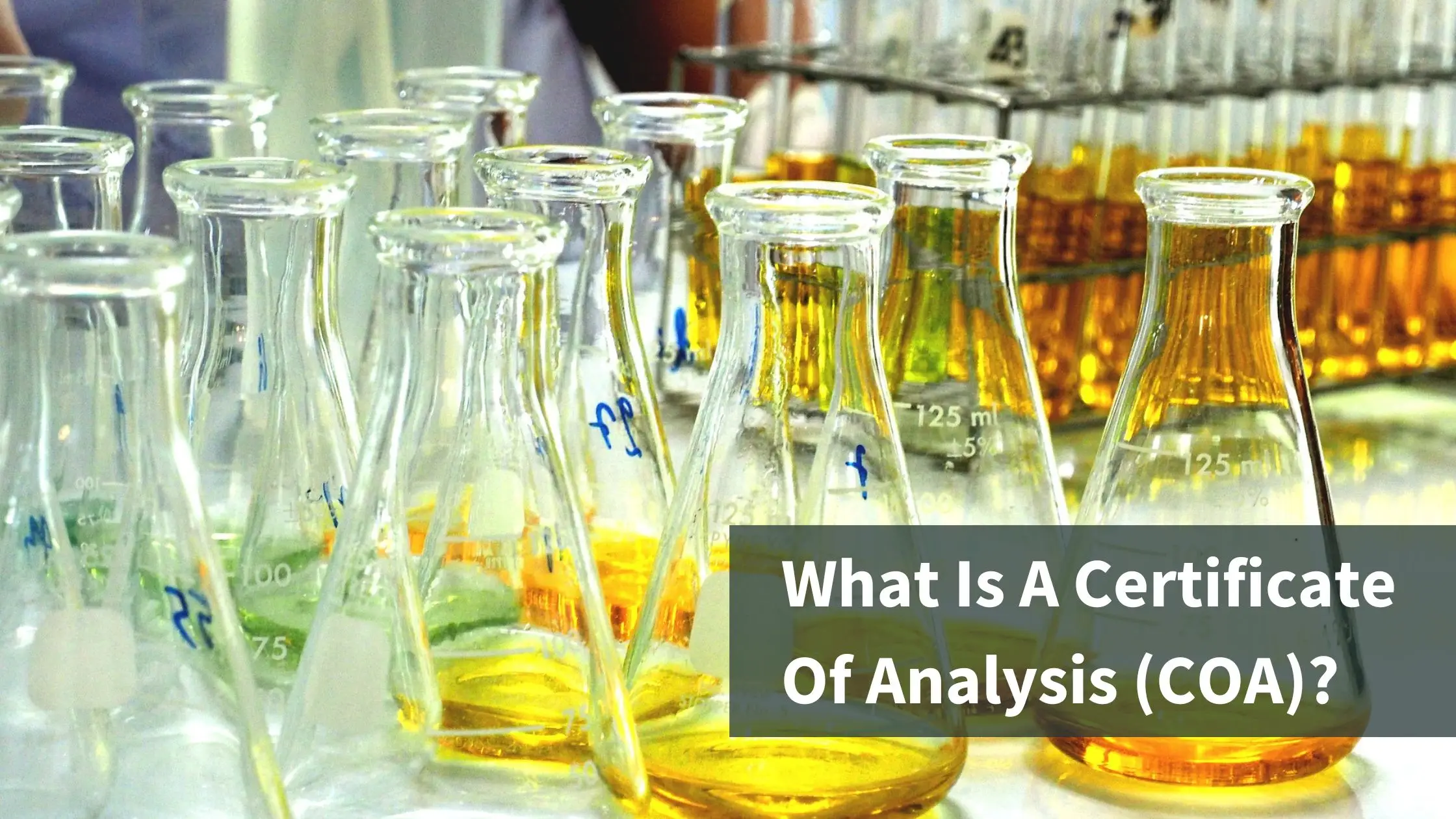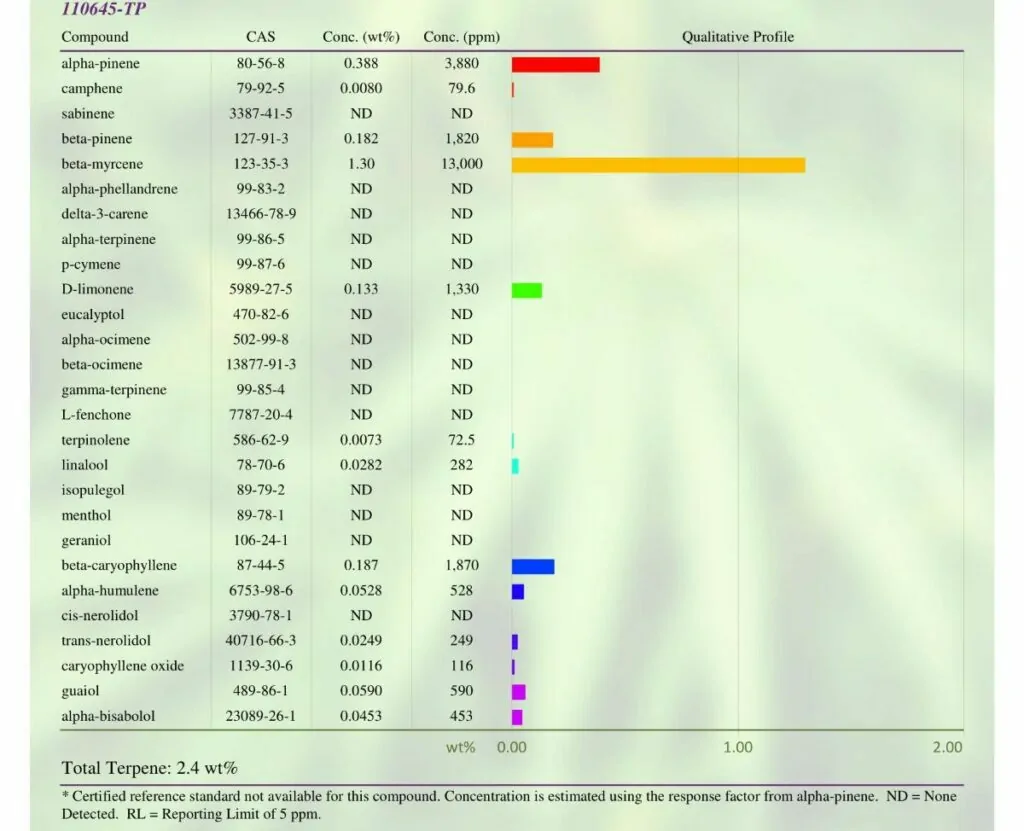No products in the cart.
What Is A Certificate Of Analysis?

Key Takeaways
- Certificates of analysis are sometimes referred to as “COAs”
- COAs are technical documents that ensure product safety and cannabinoid content
- Always be sure to see an up-to-date COA before you buy a CBD product online
Table of Contents
- What Is A Certificate Of Analysis
- Why Certificates Of Analysis Are Important
- Where To Find Certificates of Analysis
If you’ve ever purchased CBD online, there’s a good chance that you’ve seen a certificate of analysis before. Sometimes, those in the cannabis and hemp industry shorten the name to “COA.” No matter what you call them, COAs are technical documents that inform you about CBD product’s potency and purity.
In this post, we’ll explore what COAs are, what kinds of information they contain with regard to your hemp or CBD product, and where you should look for them.
What Is A Certificate Of Analysis?
A certificate of analysis, C.O.A. for short, is a technical document that’s supposed to give you a snapshot of your product. CBD product COAs should tell you what cannabinoids are present in your product, whether or not there are any contaminants, and if the amount of CBD advertised matches the amount actually in the product.
Let’s break down the key bits of info that COAs should contain.
Lab & Batch Information
The first item on your COA should be information about the lab that tested your product. Your document should also list a product batch number. Companies typically use these batch numbers to differentiate their products or production runs of the same product.
Cannabinoid Potency
A cannabinoid potency test will tell you what cannabinoids are present in your product or flower. Cannabinoid potency testing also tells us how much CBD is present in a product. Compare this information to the advertised levels on the packaging. There shouldn’t be a discrepancy greater than 10% between the tested and advertised CBD levels.

Presence Of Terpenes
Terpene tests are almost exclusively run on raw cannabis and hemp flower samples. Terpenes are hydrocarbons that give hemp its distinctive smell and effects.
If you’re interested in terpenes and how they can change your smoking experience, please see our terpene series here.
Moisture Content
Moisture content tells us how much water is in our samples. Your smokable flower should be retested if it contains more than 12% water by weight. If your flower sample contains more than 15% water by weight, you should dry it as soon as possible. Higher moisture content can turn your flower into a breeding ground for microbes.
Again, you won’t find moisture content tests on most manufactured product testing, like CBD Oil COAs. Moisture content is strictly a concern when talking about raw hemp flower.
Presence Of Contaminants
In more complete COAs, called “full-panel” certificates of analysis, labs will test your products for the presence of contaminants. These contaminants could range from heavy metals to pesticides to fungi.
Most farms complete full-panel comprehensive field tests rather than individual product tests to detect contaminants, saving time and money.
And More…
Some states require additional testing on top of the tests listed above. While not technically considered dangerous, some states require specific testing for
- Yeast – An organic microbe that not only makes your bread rise but can be found almost everywhere in the air.
- Solvents – Solvents include ethanol alcohol, acetate acid, and other substances used to distill or manipulate cannabinoids.
- Bacteria – Bacteria are natural. That said, too much bacteria in your product can make you sick.
Why Certificates Of Analysis Are Important
COAs are important, especially in the hemp and cannabis space, because these industries exist in a legal gray area. The U.S. Food and Drug Administration doesn’t want to regulate CBD products because of the headache it would create for them. Third-party testing is important because,
- Consumer Safety – There aren’t any state or federal agencies that are going to confirm product safety or purity. COAs are a way for hemp and CBD companies to self-check and confirm product safety.
- Transparency – Your product’s quality and safety should be confirmed by a neutral third party.
- Trust – By providing COAs, hemp and CBD vendors can help build trust in their industry and destigmatize cannabis use.
- Legal Compliance – COAs also help ensure that products contain less than 0.3% delta-9 THC.
Most CBD vendors and cultivators willingly provide test results when asked. Online vendors keep it on their site, though you may need a batch number to access the relevant document.
All Sunset Lake’s COAs, past and present, live on a page called “Quality Tests.”
Where Do You Get a Certificate of Analysis?
If you’re a potential customer, you should get your COA directly from the company or farm that you want to buy from. COAs should be easily accessible on a business’s website or readily provided when asked for.
If you’re given a hard time about asking for test results, move on. That farm is not worth your time.
Related: How To Find A Certificate Of Analysis
Wrapup: What Are COAs?
COAs are documents that certify the quality and safety of your hemp or cannabis product. They are effectively another form of quality assurance.
If you’re in the market for a CBD, you should know how to read your COA and what information you’re looking for. If you have any questions about Sunset Lake’s test results, please feel free to ask us for help using our contact page. We’re more than happy to oblige.
